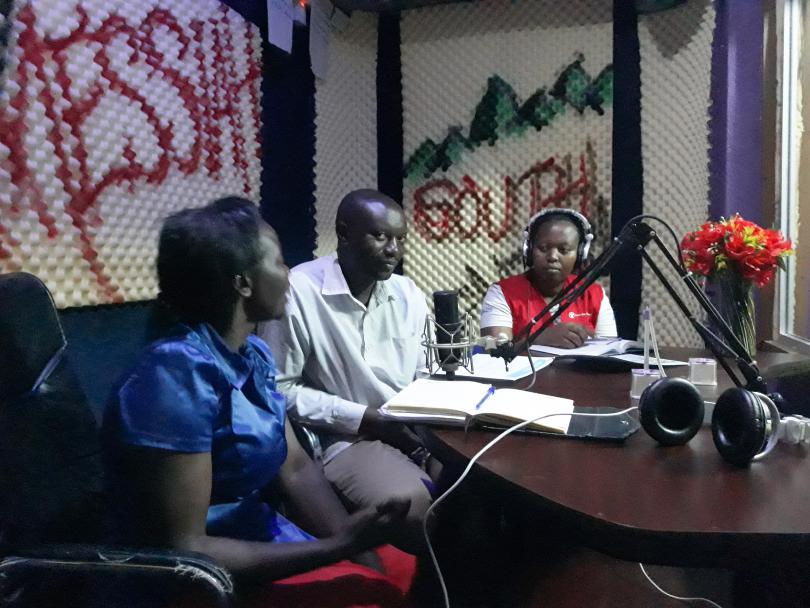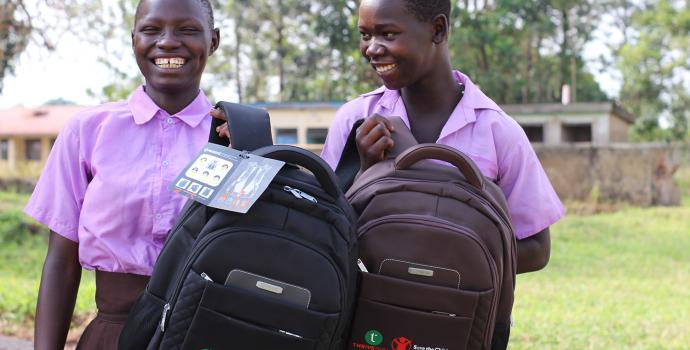Information can save lives as Ebola spreads
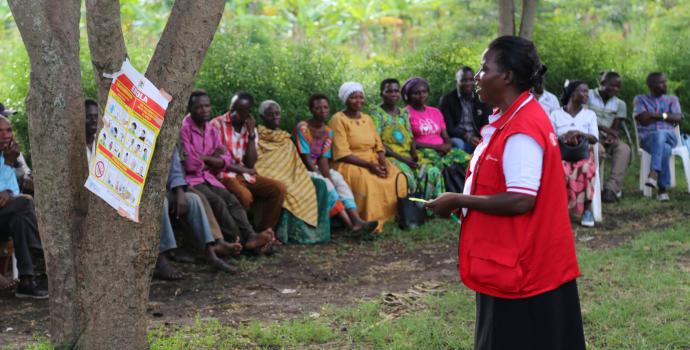
On the edge of the circle a middle-aged man raises his hand and slowly starts to speak. “I hear that Ebola is the result of witchcraft,” he says in a tone that’s part question, part statement. A woman follows: “I’ve heard that in Congo they give you an injection and then you get Ebola.” Another man worries about reporting any symptoms to health workers, as he’s heard that Ebola victims have had body parts such as tongues removed and sold before burial.
One of the biggest challenges to tackling Ebola is the rumours and myths that spread quickly in these rural areas.
We’re in the village of Kyempara in western Uganda, just a few miles from the Congolese border. The outbreak that has so far killed more than 1500 people in DR Congo recently spread into Uganda, killing a 5-year-old boy, his 3-year-old brother and grandmother.
In the centre of the village more than 80 people have gathered under the trees for a community dialogue organised by Save the Children and the district government. It’s one of many being held throughout the region to try and prevent the spread of the disease.
Rose Namugerwa is one of Save the Children’s health workers in the area. She listens to the many questions and then calmly responds. The threat is very real and potentially deadly, she explains, but there are simple steps that everyone can take to reduce the risk. The disease spreads through bodily contact and fluids such as sweat and blood, so Rose explains that the best way to protect yourself is by not touching people – don’t shake hands or hug – and by washing your hands thoroughly throughout the day.
One man has heard that a low temperature is a sign of Ebola, so Rose corrects him and clarifies that the opposite is true – a high temperature above 38 degrees can be one of several indicators. A woman who trades in the market says she’s worried about transferring the disease via cash that changes hands multiple times each day. A government health official reminds her to wash her hands with clean water and soap before and after every transaction.
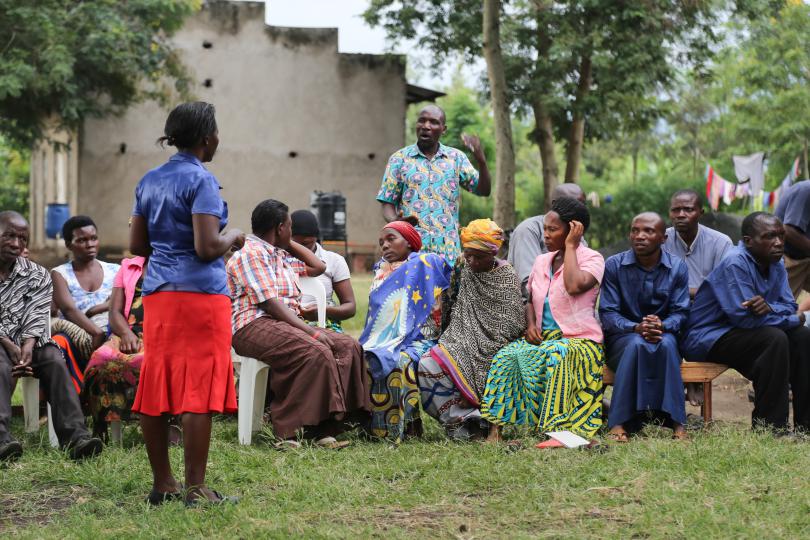
The rumours can have potentially deadly consequences. At a recent burial of a suspected Ebola case, the community became hostile and removed the body from the burial team to check that no body parts had been removed. It could have put the whole community at risk of contamination.
The dialogues are just one way of spreading information and good practice. Rashida is a volunteer on the Village Health Team (VHT) in Kabafu, a village of about 1000 people. She received Ebola training from Save the Children and now goes door-to-door and into schools to speak to people in her community.
“I demonstrate the most thorough way of washing hands, tell them not to touch anyone and not to eat wild animals from the park,” she says. “At first they think Ebola is passed through witchcraft, but we teach them the real causes and how to protect themselves. Gradually they become comfortable. I see a big difference in people’s behaviour. Now they wash their hands more, they greet without shaking hands and protect themselves at burials.”
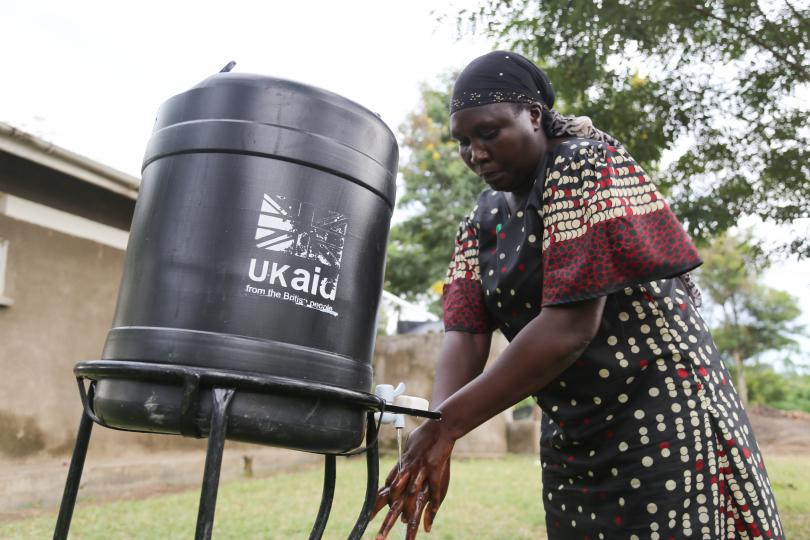
Radio is one of the best ways to reach mass audiences in this rural region. At the Messiah FM studios, Annet Kabasinguzi from Save the Children joins district health officials to take part in a one-hour talk show dedicated to Ebola. Listeners of all ages call in with questions. Most want more information on how to identify and treat the disease.
Health facilities in many of the poor rural communities are severely overstretched and under-resourced. Uganda’s Ministry of Health is leading the response, but more financial support is needed. Some health centres don’t have protective gloves, syringes or thermo-flash thermometers for checking temperatures. Some schools in places like Kyempara do not have latrines or handwashing facilities. Western Uganda also hosts more than 300,000 Congolese refugees, who continue to arrive daily – thousands more have crossed the border in the past few weeks. Uganda has opened its doors to help refugees in need, but there has not been enough international funding to respond to the influx, even before the Ebola outbreak.
Save the Children is distributing vital Infection Prevention and Control (IPC) materials, such as gloves and handwashing equipment, to some of the most remote health facilities, as well as working with local government to disseminate information.
But more support is needed from international donors – particularly investment in engaging communities and making sure they have the information they need to protect themselves, and in supporting community workers like Rashida. The recent cases in Uganda are a clear warning sign, and acting now can prevent the disease spreading further. Providing accurate information really can save lives.
